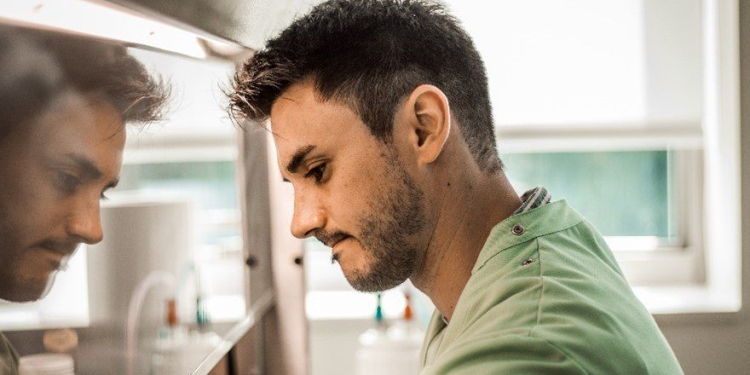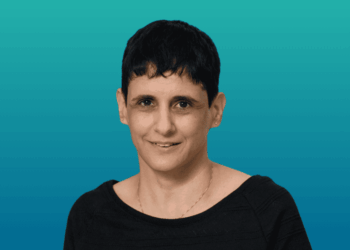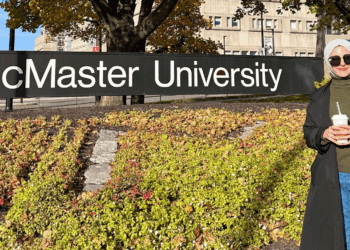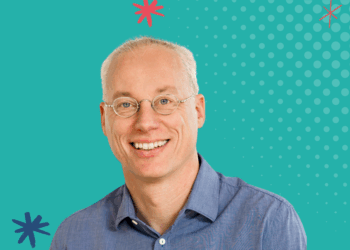
“They say that curiosity killed the cat, but they do not say if what he discovered was worth it,” the great writer José Saramago once said. I have been curious for 36 years, and curiosity has not killed me yet. Still, without a doubt, it led me to discover many worthwhile things, mainly “living.”
From a very young age, around 6 to 7 years, I had a great fascination for the knowledge of natural sciences. One of the habits that I enjoyed the most when going to my grandmother’s house was being able to watch cable TV (at home, we only had air channels).
Thus, I could watch the Discovery Channel and absorb knowledge and the history of those who brilliantly produced it. I was deeply inspired by Albert Einstein, Marie Curie, and Stephen Hawking. Sure, even by Batman and Spiderman, who, in short, were scientists too. With so many influences, at 8, I made “a decision” about my dream of being a scientist. This led me to set goals: to go to a pre-university school in my preparatory, to train as a chemist, and then to study biochemistry or genetics. Yes, 8 years old! Seeing the decision of a little boy who levitated 2 meters above the ground, mounted on his dreams, my family began to give me chemistry sets, a microscope, and much support. Over the years, I also realized that science had something special in Europe, so an extra goal was to get there as a man of science.
“The funny thing about learning science is that the more you know about the deep mysteries of nature, the more you understand about yourself and how things work in our daily lives”
I come from a lower-middle-class family in Argentina, so resources were always limited. However, with the necessary effort and motivation intact, that path set by a dreaming infant was indeed followed. I studied chemistry, graduated in Biotechnology, and did my Ph.D. in Biological Sciences. My untiring curiosity took me from topic to topic, field to field, from plant molecular and cellular biology to green chemistry, bioprocesses to biomedicine. Also, I could not fail my European dream, so I finally ventured into the unknown by crossing the ocean alone and without knowing anyone. That is how I arrived in Portugal and began the path I continue to pursue today at the Center for Biotechnology and Fine Chemistry of the Portuguese Catholic University.
The funny thing about learning science is that the more you know about the deep mysteries of nature, the more you understand about yourself and how things work in our daily lives. So, you see, I suffered from digestive problems since childhood, resulting in chronic gastritis in college. My professional development gave me the tools and the notion to be inspired by my health problems to guide my curiosity and, ultimately, my line of research. This journey led me, in 2021, to be the co-PI of a project that explored the technological valorization of natural compounds to prevent cancer in the gastrointestinal tract. Finally, in 2023, I became the PI of a new project to consolidate this specialized work focused on these gastrointestinal ailments.

All this, up to here, as a professional path can be interesting, but we are more than titles, rational decisions, and technical experiences; we are people. There is much more behind that path, a link to love. The love for my land that I always carry with me, even tattooed on my skin. My love for those extraordinary people who have accompanied me with generous friendship at each stage in Argentina and Portugal. And very notably, the love of my family, whose support and admiration gave me wings to fly and become the first professional with superior training in my caste. Indeed, my mom was the great engine, my inspiration to work tirelessly to build my dreams. Considering the second law of thermodynamics, the universe tends to chaos, and there was no exception here. When I started my project to prevent and treat gastrointestinal ailments that can lead to cancer development this year, entropy did its thing. A stroke of irony hit me in the face: My mother was diagnosed with cancer in her gastrointestinal tract, specifically the esophagus. Despite the heartbreak and emotions on the floor, I tried to stay strong for my mother through the challenging process.
After 3 months of struggle, she passed away, but her light continued for us. I pushed myself to increase my professional commitment to cancer-related research. Even an ocean apart, it is always her, my inspiring muse, from her love and even when I lose her.
We are humans and emotional, and things are never easy despite working on my vocation and being happy with it. I have gone from fun and adventure to stress, from calm to burnout. But for now, everything has been a learning path to reach the system’s equilibrium (once again, thermodynamics is doing its thing). Usually, a lesson or conclusion is expected at the end of every story, but this is only a half-written story. However, I can provide preliminary results by saying that behind science is a lot of passion and emotion; behind knowledge, there are people and dreams, which perhaps began in childhood games.
 About the author:
About the author:
Dr. Ezequiel Coscueta is a Junior Researcher at the Center for Biotechnology and Fine Chemistry and Invited Assistant Professor at the Faculty of Biotechnology, Portuguese Catholic University. A native of Argentina, he obtained a Ph.D. in Biological Sciences (Universidad Nacional de Rosario – UNR, Argentina) and a B.Sc. in Biotechnology (Universidad Nacional del Litoral – UNL, Argentina). His academic and professional background involves applying biotechnology to food and biomedical engineering. Over the last five years, his work has focused on developing innovative solutions to address challenges in the nutraceutical field for gastrointestinal and metabolic health.



 About the author:
About the author:




